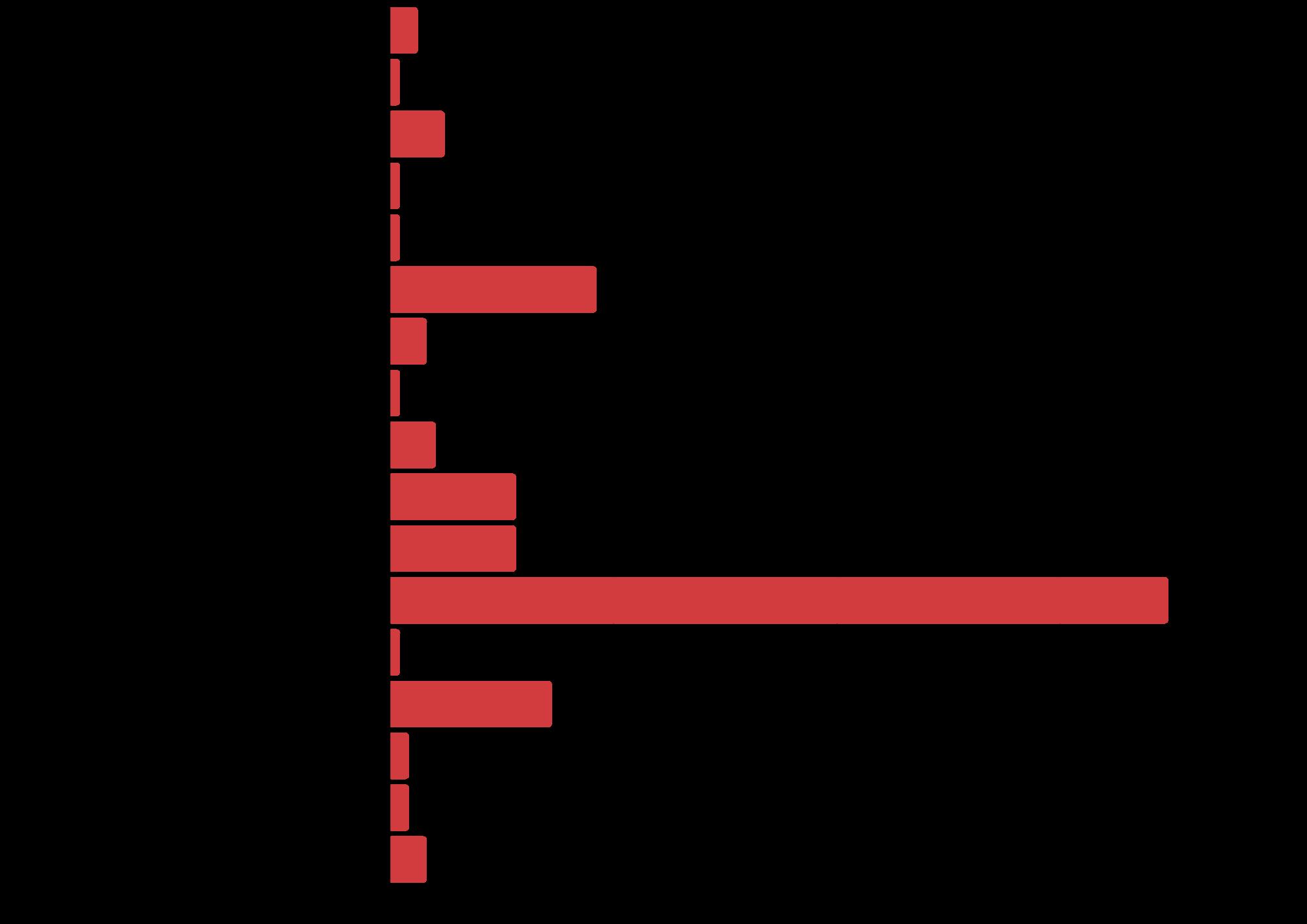
25 minute read
II. Grievance Reporting & Remediation
This section reviews overall grievance remediation and remediation of GBVH during the reporting period to show the positive impact on the day-to-day working conditions of workers. This section also shares an analysis of the grievances that went through the reporting and remediation mechanisms under the Agreement. There is also a description of the multi-tier reporting and remediation system as well as the impact of this system on business.
A. Grievance Analysis
Advertisement
Workers in the facilities raised 185 grievances, the majority of which (170) were reported by women workers, and one by a factory manager to the union. Of these grievances, 182 were resolved, and 90% were resolved within a week.
Figure 1. Grievance Remediation - Overall
185 RAISED
Workers raised 185 grievances, of which 95% were raised by women workers.
182 RESOLVED
163 RESOLVED K
98% of the grievances raised were resolved. 90% of grievances raised were resolved within a week.
Table 1: Resolution Status of Grievances
Table 2: Time Taken to Resolve Grievances
Time period: April-December 2022
Workers used the space for dialogue created by the Dindigul Agreement to raise not only GBVH-centered grievances but also other related issues such as access to basic amenities, health and safety, minimum wage violations, problems with transportation provided by the factory, etc.
Figure 2. Grievances Reported - Types
Number of Grievances
Number of Grievances

In Focus: GBVH Cases
Examples of remediative step(s) taken in addressing GBVH-related grievances, after evidencegathering and investigation:
Violation
Photos of women taken without permission
Remediative Steps
• Management staff perpetrator terminated
• Verbal warning to perpetrators by SFMs/trade union, in presence of the HR manager; perpetrator required to apologize to victim(s) and bystanders
Verbal abuse
• Monitoring of perpetrator by SFMs/HR manager. In case of recurrence, a written warning and/or suspension of perpetrator. The perpetrator was also asked to provide a written apology to the survivor and a written statement promising nonrecurrence to management
• Further recurrence led to termination of the perpetrator
Verbal and physical abuse
• Steps 1 and 2 (see above)
• Associated production-related core issue: Survivor had raised issue of high production targets per worker in the line; subsequently, adequate number of workers were assigned
Restrictions in mobility
(woman worker prevented from seeking housing outside the factory hostel)
• Worker allowed to find housing outside the factory complex
• Refresher session organized for women’s welfare and HR team on freedom of mobility under the Agreement
Inappropriate touch by a woman co-worker
• A verbal warning to the perpetrator by SFM, and informed factory HR and the trade union; no recurrence
Women workers’ request for job reassignment due to occupational health and safety issues denied by direct supervisors
Freedom of movement
(Women workers living in hostels not allowed to go out on their own on Sundays)
• Weekly union-management meetings deemed requests fair; re-assignment was approved
• Workers’ complaints about occupational safety and health resolved and their suggested changes implemented
• Women workers allowed to move freely in and out of hostel facility
• Driver directed to pick/drop woman worker at bus stop of her preference
Freedom of movement
(Women worker complained that bus driver refuses to pick/drop her at a bus stop outside her neighborhood, citing patriarchal ideas of safety)
• A session organized with the driver on professional conduct and the provisions of the Dindigul Agreement
• A general statement issued to drivers that women workers can choose their pick-up/dropoff location, as long as they inform management sufficiently early to avoid overcrowding in buses
Most GBVH grievances were forms of verbal abuse of women workers by male management. In cases of verbal abuse, the management staff were warned and asked to apologize to the worker(s) for their behavior. However, if the behavior continued, of which there were rare instances, they were either suspended or terminated, based on the nature of verbal abuse. One form of verbal abuse – the imposition of gender stereotypes in everyday work practices and the use of phrases and words questioning the “moral character” of women, especially single mothers by management – was also a common grievance workers raised. In these cases, SFMs or the union gave immediate warnings. In some cases, where SFMs identified workers making similar comments, they addressed it immediately as well. However, given the recurring nature of these complaints, the Implementation Committee has suggested that TTCU, with the implementing partner, develop upcoming trainings to address these behavioral practices.
Several GBVH grievances were regarding the unwillingness of lower management to adequately re-assign women workers who stated their inability to perform certain roles due to severe health issues, some of which arose from occupational hazards. This in turn became a form of male management harassment of female workers. For example, a woman worker, working for several years in the ironing department, developed severe leg pain and requested a job transfer to another department. This request was denied for months by her supervisor. She raised the issue with her SFM and the union raised it during the weekly union-management meeting. The worker’s request was considered reasonable, and she was able to get a transfer. In five other similar cases, reflected in Figure 4 above, after the union raised the grievances to senior management, the workers were granted job re-assignments and the issues were resolved within two weeks.
The remaining grievances reflect severe forms of GBVH such as physical abuse and inappropriate photography of women workers by management staff, raised during the early months of the implementation of the Agreement and remediated through union-management dialogue. In all such cases, management agreed to terminate such management staff as remediation of the grievance.
A notable achievement has been the actualization of the freedom of movement for women workers in hostels. Before the Agreement, women workers in factory-owned hostels were allowed to leave the hostel compound only on Sundays; now, workers living in the hostel are free to move in and out of the factory hostel throughout the week.
Decisive and timely remediation of these grievances once they were reported, and the involvement of SFMs have helped to demonstrate to women workers that their empowerment and access to fair and respectful treatment is a priority at the workplace.
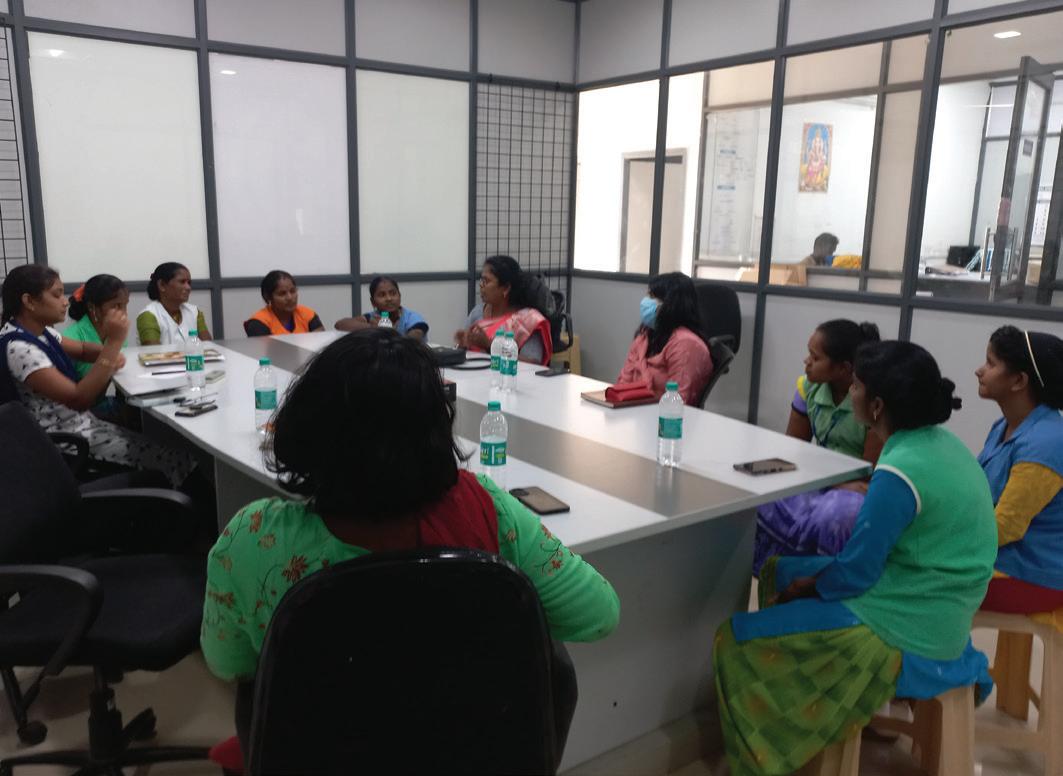
Workers report this analysis in their own words when narrating the impact of the Agreement.
“With regular dialogue between union and management and strong anti-retaliation protection, most workers and shop floor monitors are not scared to raise their grievances – be it on GBVH or other issues, which are not covered in the agreement. This is quite unprecedented. As a shop floor monitor, workers have come to me with different issues – inability to meet production targets, severe domestic violence at home, factory toilets being dirty, etc. In most cases, either directly or with the help of the union, I have been able to take it to management and resolve the issues within a week. The factory management is also respectfully listening to our voices and not allowing grievances to escalate. I feel we now have a good working environment in the company.”
“I was one of the first women who used the grievance redressal mechanism of the Dindigul Agreement to report gender-based violence; and I did that because I believed, for the first time in my life, I might receive justice. My supervisor was verbally abusing me and questioning my character in front of other workers, while simultaneously demanding that I become a line leader and manage my line. I did not want to be a line leader under a supervisor who refused to respect me, as I knew it would deeply affect my confidence to continue working. I informed the union about my situation and they immediately called for a meeting with the production manager and HR manager.
The union and the management, within a day, gave a strict warning to my supervisor, stating that his actions will not be tolerated and he will face severe action if he continues to abuse workers. My supervisor later apologized for his behavior and now he never raises his voice to any worker. After that, I agreed to be a line leader and I feel confident to manage my line. As a veteran in this industry, I still cannot believe I received justice; and I know that this would have never happened had the Dindigul Agreement not been signed, and the union had not been present on the factory floor.
As seen in Figure 3, in the growing environment of safety and trust through the last year, workers have been raising issues related to basic amenities, like drinking water, unclean toilets, poor quality of food in the hostel canteen, etc., directly with the management. The management mostly resolves these cases within a week and informs the union of the remediative steps taken.
As some amenities-related issues have been recurring, the Implementation Committee is discussing structural solutions to prevent such complaints. For example, a recurring complaint is regarding poor food quality in the canteen. The Implementation Committee is discussing ideas such as unannounced inspections, regular worker feedback, and the nutritional content of the food.
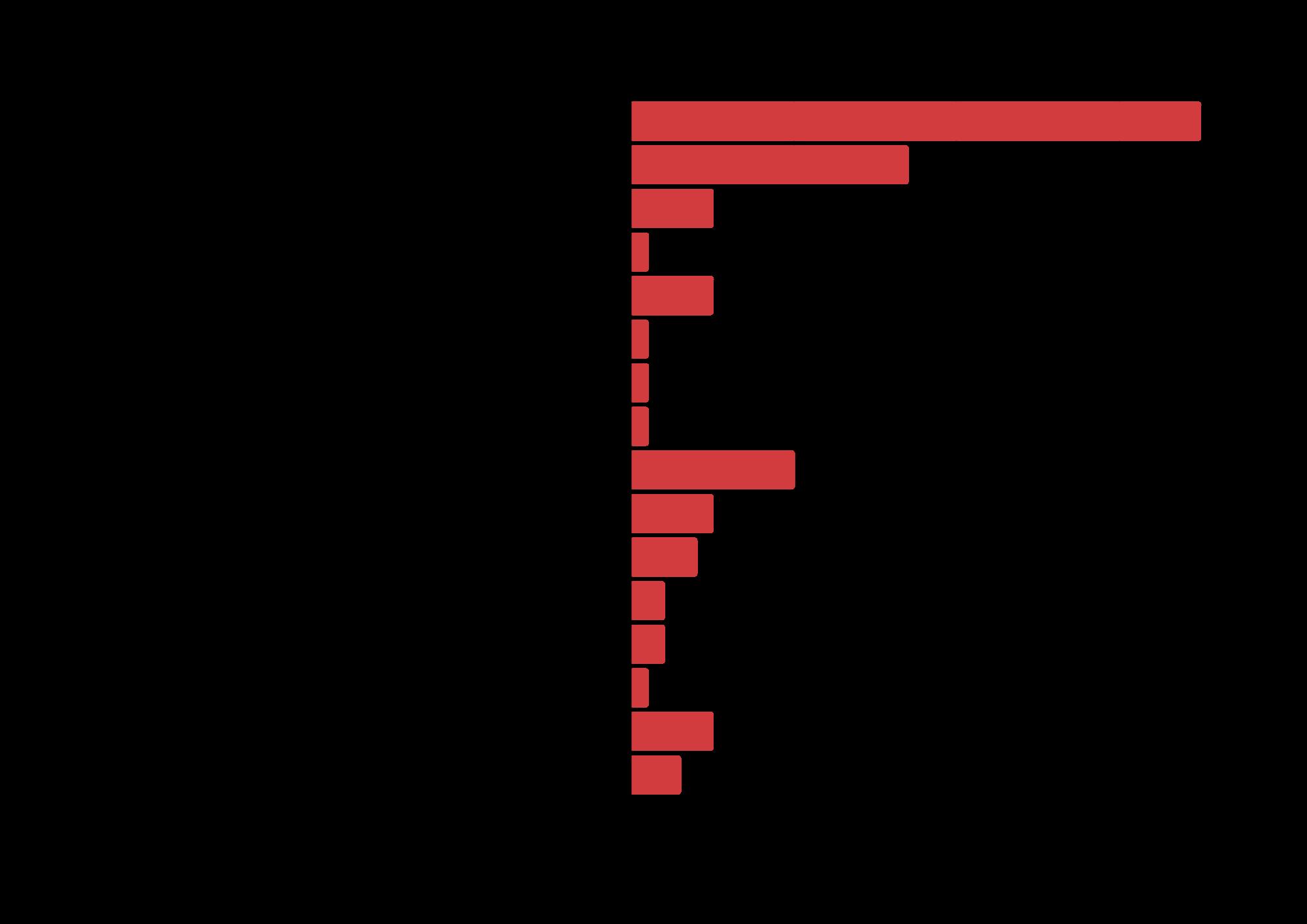
As Figure 3 also shows, workers raised grievances about a range of labor violations such as accessing social security and wages or unfair terminations. These grievances could easily turn into industrial disputes under Indian law but were instead resolved through the Agreement’s remediation mechanism, leading to learnings and cultural shifts.
Workers also used the Agreement’s grievance mechanism to raise issues in the community and homes, including caste-based discrimination and domestic violence, to the SFMs and the trade union. TTCU was able to support a response to these issues, where appropriate, and at the request of the affected worker. The successful resolution of these cases shows how the Agreement is having a positive social impact beyond the workplace – or the world of work as the ILO defines it.
As mentioned in the previous chapter, timely reporting of grievances and prevention of suppression of grievances is more important than achieving zero grievances.
The graph above shows there is an increase in reporting of grievances between April to November 2022, after which the number of grievances fall in December 2022.
November saw a sharp increase in grievances, as multiple workers raised complaints about a senior manager in the garment factories. By that time the program had already established trust among workers who felt safe coming forward. In previous months there had been a few issues with this specific manager which the SFM and union investigated leading to additional workers deciding to report grievances. The union and management, after consultations with workers, had multiple conversations as first steps at remediation with the manager, followed by strict warnings to change his practices. However, as he did not change, and more complaints came in, the workers, union, and management decided the best solution was for Eastman to terminate him, which they did in November. December saw a dip in grievances, after his termination.

This trend in reporting demonstrates that the Agreement opened up a space for workers to safely report grievances. Women workers felt empowered and began to report less severe forms of GBVH and other labor violations before they could escalate. They experienced timely and appropriate remediation, involving the trade union and senior management. This also sent a strong message of zero tolerance to lower and mid-level management with regard to GBVH and other labor violations. The management’s willingness to even remove a senior-level management staff when he failed to change his behavior despite repeated warnings became an important example that led to behavioral transformation within management ranks, reducing possibilities for recurrence of GBVH.
B. Multi-tiered Grievance Reporting & Remediation Mechanism
The Agreement offers a bottom-up, multi-tiered grievance reporting and remediation system, which complements the AFWA GBVH Escalation Ladder, explained in the previous chapter. The structures that have been established for the remediation process include the unionmanagement dialogue meetings, SFMs, and the ICs. Workers have multiple points of entry to raise grievances, including the union, SFMs, directly to the IC, or to the Assessors.
Data shows that workers most commonly report grievances to SFMs and the union on issues related to GBVH, employment practices such as wage violation, unfair termination, and interpersonal conflicts among workers. When a grievance is reported directly to or observed by a SFM, she typically reports it to the union. In certain cases which are immediately resolvable, the SFM may handle the issue directly. In most cases where the SFM reports the grievance to the union, the union-management dialogue process develops a remediation plan, including the SFM and the affected worker in the process.
Workers always have direct access to the IC and/or the Assessors for GBVH and/or FOA related grievances, respectively. All cases related to GBVH have to be reported to the IC under Indian law. In cases, where remediation occurs through union-management dialogue, the IC is informed and their approval sought. In cases where the union-management dialogue is unable to remediate or their remediation plan does not receive the IC’s approval, the cases move to the IC and Assessors.
In the past year, remediation has mostly occurred through the weekly union-management meetings; only occasionally, members from the Eastman head office, AFWA-India, and the Implementation Committee had to assist.
Workers usually directly reported to management for issues related to basic amenities, as discussed above. The management, upon remediation, informs the union.
II.B.i. Worker Shop Floor Monitor System
The SFM system draws from the AFWA Safe Circle Approach and is elaborated on in the Agreement. Each SFM is responsible for supporting groups of 15-20 workers to access the grievance reporting and remediation mechanism. They serve as the first point of contact for workers for raising grievances and proactively monitoring conditions on their production line. Under the agreement, SFMs are chosen by the TTCU and receive the basic training as well as an advanced specialized training on grievance remediation (mentioned above under Trainings).
The fact that SFMs are themselves workers is essential to their role. Most SFMs come from vulnerable communities; many are single-mothers, Dalits, and migrants. Some of the SFMs have themselves been victims of GBVH, and their lived experiences make them especially effective at their role in identifying GBVH, working with their co-workers and preventing the escalation of GBVH by directly intervening with supervisors.
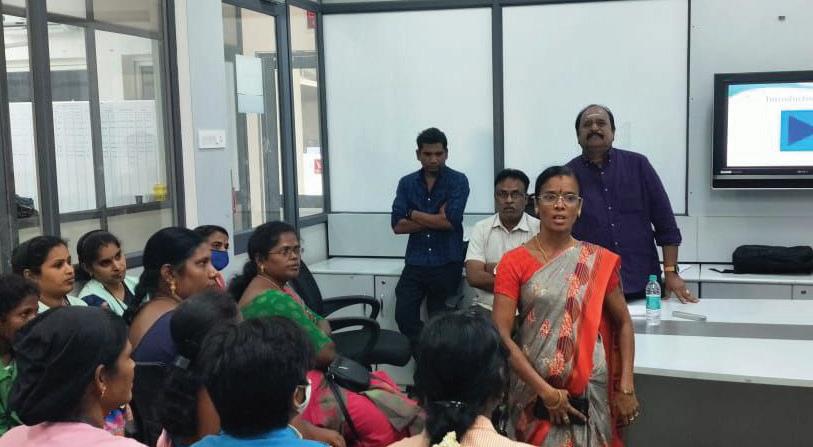
SFMs are critical to transformation and rebalancing of power on the shop floor. SFMs support workers who raise grievances on proposed corrective action plans to take to management in cases of gendered bullying and verbal abuse, and, in more severe cases of GBVH, can report the cases directly to the IC. They also report to the union leadership issues on the shop floor for the union to raise during regular union-management dialogue meetings, which SFMs may also attend. Because of their role, SFMs are provided with additional protections against retaliation under the Agreement, in which any adverse employment action against them is subject to a rebuttable presumption of retaliatory intent and can be reviewed by the Assessor and corrected through the grievance procedure. This gives them the protections they need to safely identify and raise GBVH and other grievances with management.
Fifty-eight SFMs have been selected by TTCU and recognized by the local management across the two garment units, and they have successfully handled several issues during the reporting period directly with management. SFMs have handled cases of verbal abuse by supervisors on their production lines, improper payment of wages and social security, and difficulties in accessing basic amenities like drinking water. Most of these cases were resolved within a week.
Worker Shop Floor Monitor as a tool for Women Empowerment
The worker SFM system helps in leadership development and empowerment of women garment workers. It helps them learn critical skills and competencies, including increasing their managerial knowledge, negotiation skills, and confidence.
The SFM system gives women from marginalized backgrounds, who are generally denied opportunities in garment factories, a chance to build their agency, lead groups of workers, and better understand and implement organizational structures, processes and policies. It creates an ecosystem for genuine investment and accountability for women’s empowerment from all parties, including management.
The SFM system also addresses the fundamental power imbalances within the factory floor, and gives the victims and survivors of GBVH an opportunity to remediate GBVH, based on their lived experiences. This democratizes workplaces, improves the retention of women workers, and increases work efficiency and worker well being.
The worker SFM along with the union, through dialogue with the management, ensured a deduction in a high transport fee that was making it difficult for women workers to continue work in the factory.
The worker SFMs, along with the union, through dialogue with the management, ensured a deduction in a high transport fee for workers that was making it difficult for women workers to continue working in the factory.
The experience of both SFMs and of workers on their production lines illustrates the impact of the SFM system:
“As a shop floor monitor, I try to make myself available for the most vulnerable workers in my department, especially the young migrant women workers. Even now, there are some women workers, especially among the migrants, who are scared to make a complaint. If I see a supervisor mistreating a worker, and even if she does not complain because of fear, I tell the supervisor that his behavior is not acceptable under the Agreement; and I report the matter to the union. This itself will prevent a supervisor from indulging in other forms of genderbased violence.”
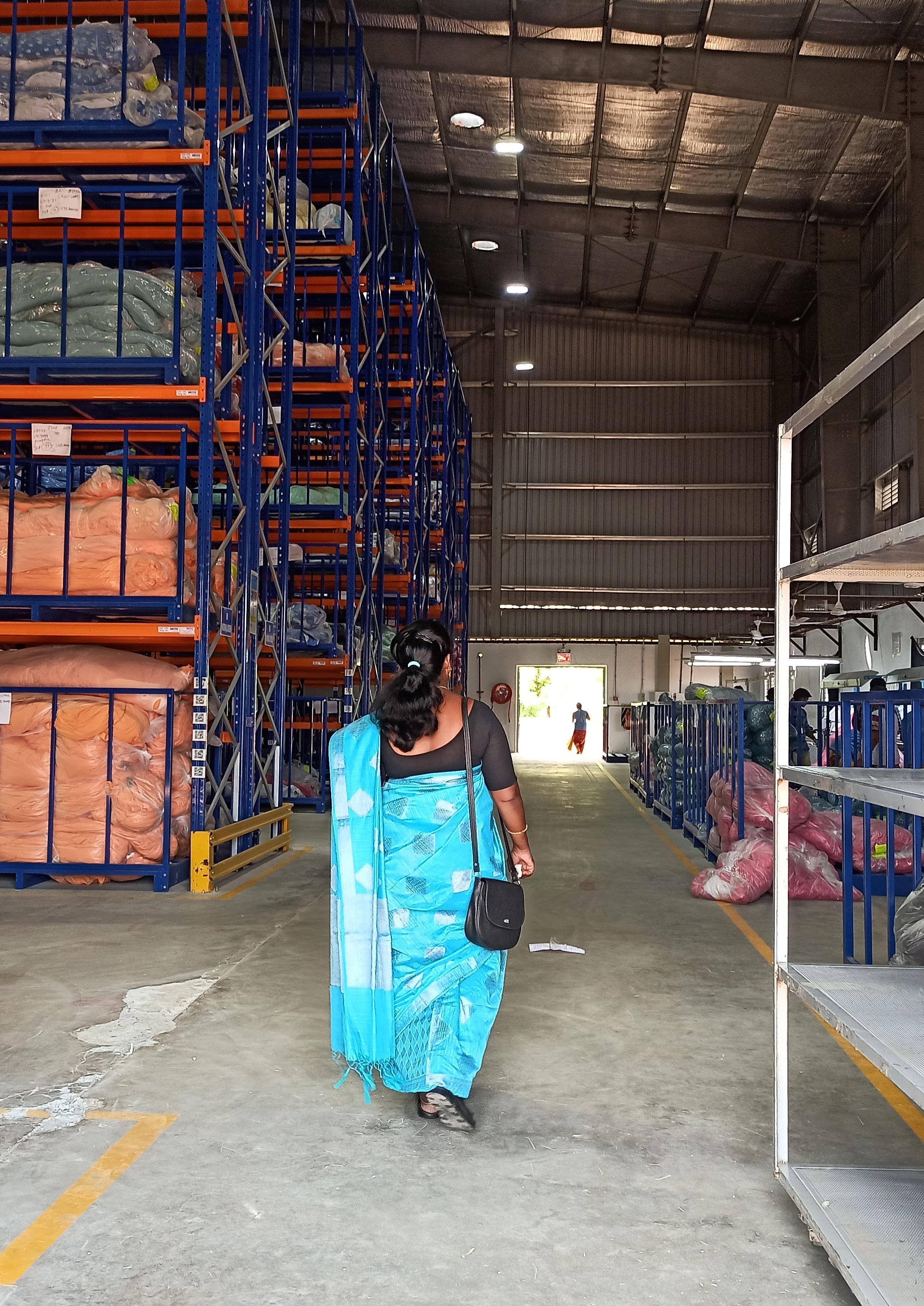
“After the shop floor monitors were introduced in our factory floor, supervisors and management are more afraid to commit any act of gender-based violence or discriminate against a union member. When my supervisor yelled and misbehaved with me, I immediately reported to our shop floor monitor, who informed the union and management within a day. The supervisor was immediately warned that his behavior is unacceptable, and after that he speaks to all workers politely and respectfully. He knows the shop floor monitors are always keeping an eye on him, and we can easily access the management and union to raise our grievances through them.”
- Gayatri, garment worker
II.B.ii. Establishment of Union-Management Dialogue
Under the Dindigul Agreement, regular remediation meetings are stipulated between the trade union and the management to resolve grievances, including GBVH, FOA issues, discrimination based on caste and migration status, and retaliation. In practice, the dialogue covers even broader issues in a manner both the union and management find productive. The unionmanagement dialogue was implemented in this way in recognition of the fact that unresolved non-GBVH workplace issues, such as wage violations, contribute to a culture of impunity that facilitates GBVH. In addition, the structure was established to create a means of direct unionmanagement dialogue as an initial step for prompt remediation with an option to escalate if an agreement at that level cannot be reached. This process also helps ensure an actualization of FOA and social dialogue in the Agreement.
The union-management dialogue meetings happen every week, and the senior leadership of the trade union visits each unit of the factory at least once, interacting with the workers during break hours to ensure they have regular access to the union within the factory to raise any concerns or grievances. Also, on the same day, the union leaders have meetings with factorylevel management (including Human Resources and Production Managers) in each unit to discuss and remediate the various grievances workers have raised over the week. SFMs also attend the meetings, as required. The resolution status of all grievances raised in a week are reviewed in the upcoming week. Between April and December 2022, TTCU and Eastman Export local management met more than 30 times in the factory.
Any grievances that remain unresolved through this dialogue process can be referred to higher levels of management and union leadership for further dialogue as needed. Then, if no remediation is agreed upon, the grievances can be reported to the IC under India’s POSH Act for GBVH cases and to the independent assessors in the case of FOA and other violations of the Agreement. In the first year of implementation, only a few cases were unresolved through the regular union-management meeting but were resolved by higher-level union-management dialogue.
Evidence shows that regular dialogue prevents the escalation of misunderstandings at the workplace between management, staff, and workers, and also avoids the escalation of gendered bullying practices into more aggressive GBVH. In the dialogue process, TTCU is guided by the Agreement’s core principles ensuring that discussions lead to remediation for past harm, accountability, healing, and safety for all.
The regular meetings involving SFMs, trade unions, and factory-level managers also help facilitate behavioral transformation in lower-level management. Such interactions further lead to greater accountability of lower management, which in turn leads to improved industrial relations and workplace efficiency.
The union-management meetings are also an open space for management to raise their concerns with union leadership regarding issues like productivity and quality control. When such issues have been raised, both parties have found collaborative ways to work together to resolve the issues successfully. While there was some reluctance in the lower management in the initial months of the implementation of the Agreement to engage in good-faith dialogue, this soon changed when they realized that the union is also open to hearing the issues of management and to working with them in solving them, which also improved efficiency and productivity.
For example, production targets and job assignments are often contentious issues in the industry and are a result of multiple intersecting factors involving brands, suppliers, and labor. These issues are also major flashpoints for disputes and violence between workers and management at the production sites. During the implementation of this Agreement, in certain instances where such disputes arose, the SFMs and the trade union mediated between workers and management, helped each other understand the root causes for such issues, and assisted them in developing remediation steps.
A case in point: During a particular week, there was a shortage of orders, hence a need arose to employ some of the Sewing Machine Operators (SMOs) as Checkers in other production lines. The SMOs were, however, unwilling to work as Checkers, and the Production Manager raised this issue with the union and SFMs. The SFMs called for a meeting with these workers, and understood from them that the tone and manner in which the decision was communicated to them by their supervisor made them feel it was a demotion, not a temporary change due to an order shortage.
The union and the SFMs explained to the Production and HR teams how they could better communicate decisions like these to workers. The SFMs helped the management resolve the tensions between the SMOs and production team and ensured that those SMOs would temporarily work as Checkers till orders increased in the factory.
Such acts of co-operation and mutual support between union and management has played a huge role in changing the culture around GBVH within managerial ranks. It has built trust between workers, union, and lower-level management, and is creating more mature industrial relations, wherein FOA and meaningful mutual understanding are seen within managerial ranks as a pathway for increased productivity for all.
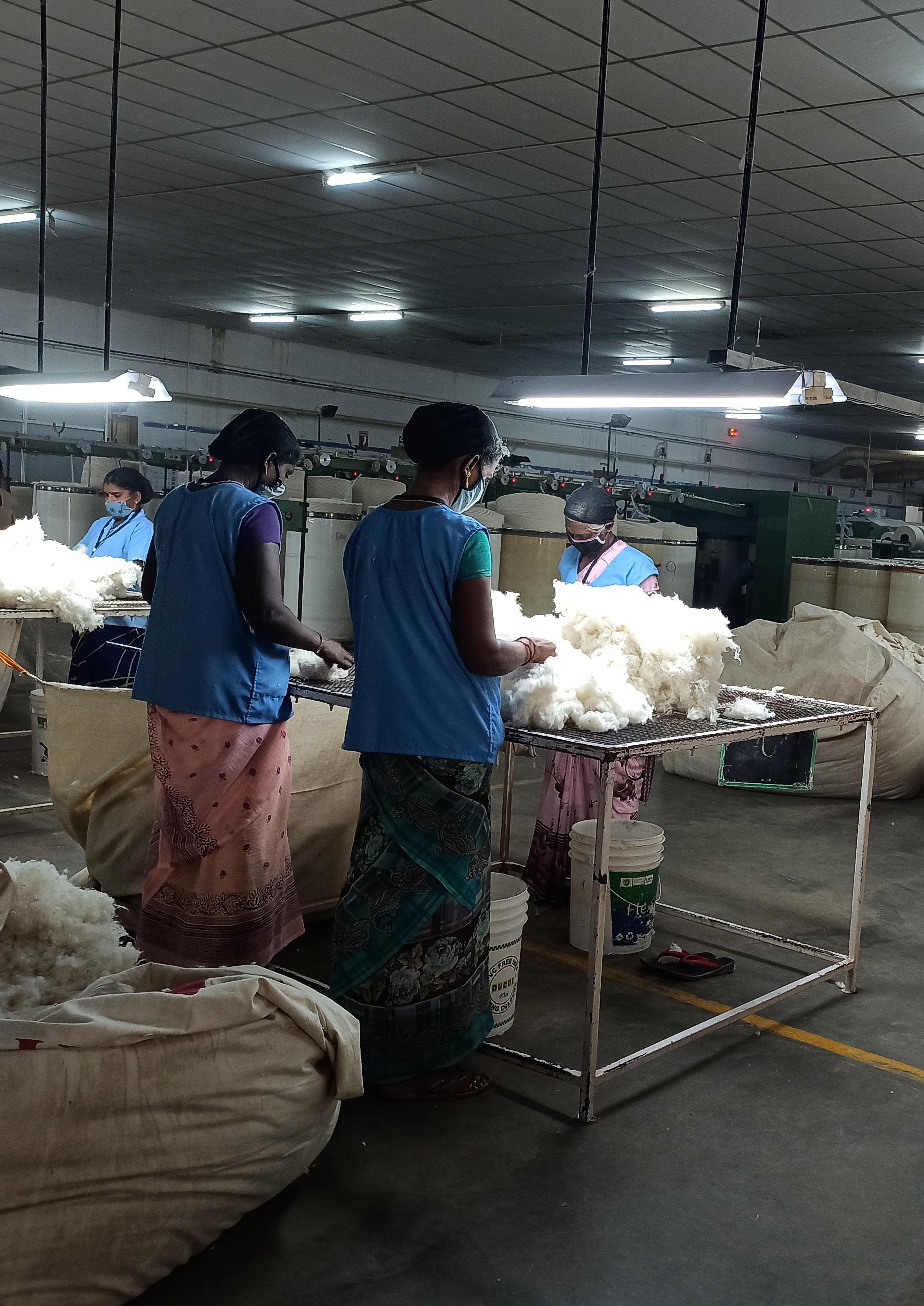
“A lot of times, big issues arise when the small misunderstandings between management members and workers are not resolved immediately. This is what we try to address through our weekly meetings with management. For example, some workers were changed from tailors to checkers, given an order shortage. They were not informed of the specific reason for this decision, and they felt targeted. We organized a meeting between management and workers, explaining the reason for the decision. We also told the management how they can better communicate the decision. Once this transparent communication happened, workers easily agreed to work as checkers for the time period.”
- Jeeva M, General Secretary, TTCU
“Working with the union, we are immediately receiving grievances before they escalate. We are resolving the grievances with the union as soon as we can. We are now always open to constructive feedback and suggestions from the union and the workers. We can see this has improved workers’ trust in us, has reduced job attrition, and has
From FOA Violations to Mature Industrial Relations
Before the implementation of the Dindigul Agreement, there was a deep distrust of the trade union across lower and midmanagement. Women workers associated with the union faced grave retaliation. Management viewed the trade union as an entity that would harm productivity and the factory. The worker members of TTCU and women SFMs, after the Dindigul Agreement, wanted to remove this deep distrust of the union among management staff and they used the weekly meetings between the trade union and the factory as a tool to achieve it. They practiced certain principles to guide the dialogue process and ensured that the focus in discussions and remediations for past harm is on accountability, healing, and safety for all.
TTCU has also played a key role in this trust-building. TTCU and SFMs used the weekly meetings not always to raise issues of workers, but to understand the pressures of lower and mid-management, especially when delivery timelines are short and put stress on associated costs. In response, they showed the production team how to have open and transparent conversations with workers, including on the management’s difficulties, and how such open dialogue as opposed to verbal abuse, improves workers’ productivity and confidence. The result is more mature industrial relations, where freedom of association and meaningful mutual understanding are seen within managerial ranks as a pathway for increased productivity for all.
Women’s day celebrations involving workers and TTCU in Eastman Exports.
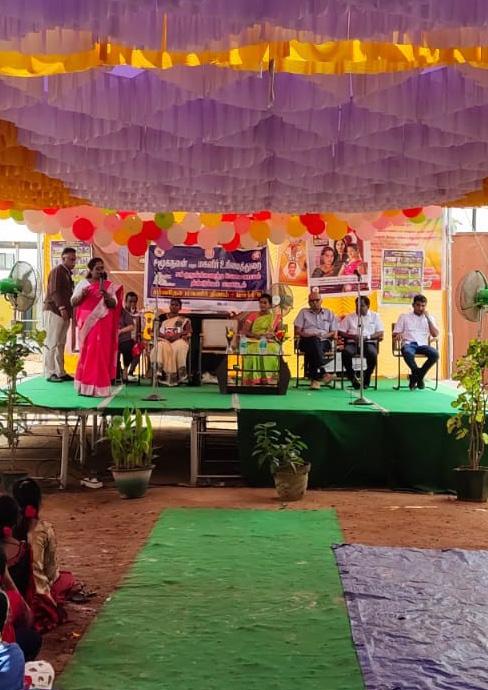
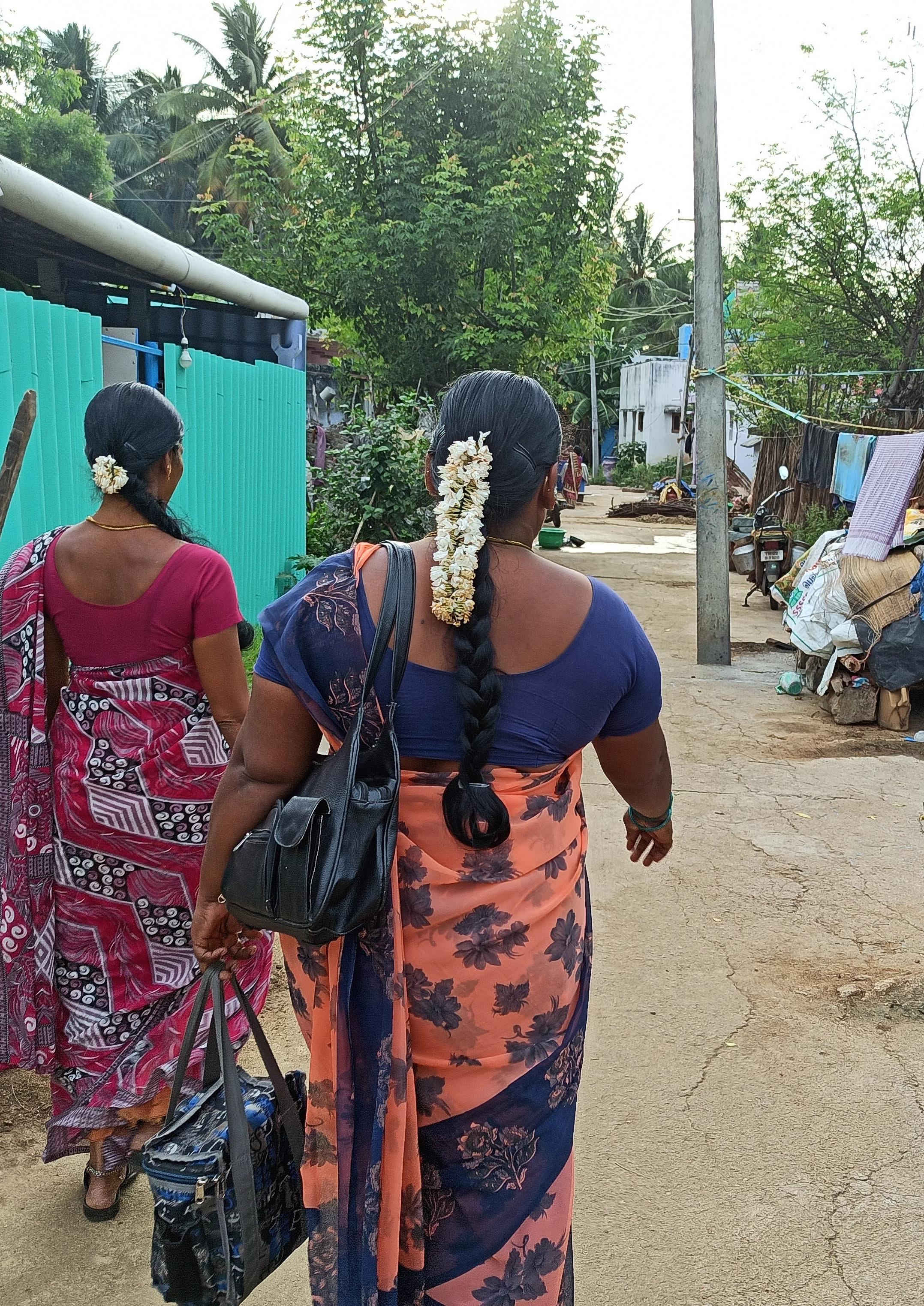
“We realized that many of the women workers are sitting idle next to their sewing machines during company work hours, as the garment production was being poorly designed and planned by the factory-level production management team. Later, these same workers were asked to stay back and do overtime work. Having worked in the industry for decades, we know how different functions can be run simultaneously in an efficient manner, ensuring staff capacity is fully utilized, with little to no overtime work required. So, the shop floor monitors from the fabric, cutting, and sewing department, with the union, had a meeting with the HR and production team. We told them that it is the improper planning of production that is leading to overtime work – and making even the machines run inefficiently, causing a loss of profits for the company itself. We told them how we thought production can be planned better, and when they realized that we are smart enough to understand production design, and that we will raise it to senior management if they don’t change their poor planning – they started becoming more careful in production design amd planning. Today, we believe the factory is functioning more efficiently because we raised our voice.”
- Shop Floor Monitors of cutting, fabric, and sewing department, Garment Unit 1
II.A.iii. India POSH Act Internal Committees and Assessors
Under the Sexual Harassment of Women at Workplace (Prevention, Prohibition, and Redressal) Act,12 every workplace which has 10 or more employees, must constitute an internal committee (IC) to receive and redress complaints on sexual harassment at the workplace.13 The IC consists of a majority workers, a senior woman employee in the factory, and an independent expert. Under the Dindigul Agreement, the independent member of the IC (also known as Assessor) has to be approved by employer and labor stakeholders. All worker members of the IC are appointed by the trade union partner, TTCU. Moreover, all decisions of the Assessors regarding cases of GBVH, FOA, and caste-based discrimination are binding under the Dindigul Agreement, with Eastman facing business consequences if they fail to implement them. As a result of the Agreement, the IC, which was ill-functioning earlier, has been reconstituted across all facilities under the Agreement, with worker members being appointed by the union and the independent members being appointed through the consensus of labor and employer stakeholders. Initially, separate ICs were created for each workplace facility as part of the Agreement. Later, workers in the spinning mills asked for a separate IC for each shift in each unit, to ensure greater access to the IC. Currently, there is one IC for each of the two garment units, three separate ICs for each of the three shifts in the two spinning mill facilities, and one IC for the printing unit. A total of 9 ICs currently function within the factory complex. The worker members of the IC, all of whom are women, include both local and migrant workers. Also, all ICs have one independent expert member; the independent members include a lawyer and a senior gender expert. The IC Assessors speak all relevant languages of workers covered by the committee, including Tamil, Bangla, Hindi, and Oriya. The Assessors and the IC also have the power to bring in other experts, including experts on caste, as needed. They have identified a roster of such experts to draw from.
These changes in practice mean that the ICs are better able to fulfill the promise of the Indian women leaders who advocated for this act and for protections for women across India from sexual harassment
During the reporting period, all GBVH grievances were resolved either by SFMs or during union-management dialogue, but at the time of writing, one case had been reported to the IC and is under investigation. It is expected that in future reporting periods there will be use of ICs to resolve GBVH as well.
Finally, the Agreement invests the independent expert members with the role of investigating and determining remedy in the event of any complaint filed with them regarding FOA or any other violation of the Agreement; no such complaints were filed during the first year of the Agreement.
III. Governance of the Agreement
The Implementation Committee and the Oversight Committee are the governing bodies that are responsible for the overall implementation and enforcement of the Agreement.
“The meetings of the Implementation Committee are an opportunity to reflect and learn from the implementation process under the Agreement. It is a space to think and work with labor stakeholders in developing policies and structures that meet the needs of the business, without compromising on the needs of the workers in our factory.”
- Alagesan, Eastman Exports:
“The agreement has created a space of social dialogue between union and management. This has enabled us to help both workers and management improve working conditions as well as efficiency of production. Transparent conversations are happening between management and workers, and I can see that workers’ willingness to work for this factory, their confidence, and trust in management has improved.”
A. Implementation Committee
The Implementation Committee was formed as mandated by the Dindigul Agreement to facilitate overall enactment of all its terms. The composition was decided by consensus after the signing of the Agreement and consists of senior leadership of TTCU and Eastman Exports as well as AFWA members. In 2022, the Implementation Committee met three times: twice in person in Dindigul and once through a virtual meeting. The Implementation Committee, with the Documentation Officer (assigned to the Program in the Agreement), reviewed grievance reporting and remediation, and discussed structural solutions, including policy-level changes, managerial practices, productivity, and other issues. For example, the Implementation Committee has been working to develop best practices and fair policies for promotion, to prevent quid pro quo requests for sexual favors in exchange for promotions. The Implementation Committee also acts as a mediator between the union and management when required and has also played an important role in improving relationships between factory-level production managers and worker leaders, so that the concerns of both parties are addressed, misunderstandings are reduced, and productivity is improved.
B. Oversight Committee
The Oversight Committee serves the role of oversight of the Agreement and meets once quarterly. Its oversight is focused on monitoring of finance and public reporting related to the Agreement as well as approval of independent Assessors. The Oversight Committee also serves as a venue for consultations and communications among all parties about implementation of the Agreement.
Currently, the Oversight Committee consists of three representatives from labor (representing TTCU, AFWA, and GLJ-ILRF, respectively), one representative from the supplier factory (Eastman Exports), two representatives (H&M, Gap Inc.) from the three signatory brands (H&M, Gap Inc., PVH Corp.) who have rotating seats, and an independent Chair agreed upon by all parties. The Oversight Committee, which was constituted by the end of 2022, primarily works through consensus-based decision-making, and focuses on overall administration, monitoring, and evaluation of the Agreement. It meets once quarterly.
Since the implementation of the Dindigul Agreement, Eastman Exports has redeveloped and redecorated the creche within the factory complex. The creche holds more than 30 children, who are provided nutritious food under the guidance of an experienced caretaker. During the breaks and lunch hours, young mothers are allowed to feed and play with their children. The creche facilities are regularly monitored by the union and SFMs.
Eastman Exports currently provides educational scholarships in memory of Jeyasre Kathiravel. The scholarships assist financially disadvantaged young mothers to send their children to schools/colleges or assist migrant women workers who want to complete their school/college education. In 2022, approximately 40 workers received the scholarship, with many first-generation learners having an opportunity to complete their school/college education, while working. SFMs and union representatives were also allowed to nominate workers for the scholarships.
Praveena tells the story of her fight against caste-based discrimination
I am Praveena, a 29-year-old Dalit garment worker at Eastman Exports. Although I have a master’s degree, I was never able to get a teaching job due to the systemic biases in hiring Dalits in private educational institutions. Caste dictates everything in our society and as a Dalit woman in a rural village, there are hardly any opportunities to grow. This is why I became a garment worker. I am used to being discriminated against – I have seen it happen again and again. And I had just accepted it. I did not think I could fight it, or that anyone will stand with me or even hear me out. But then the Dindigul Agreement happened in my factory, and the union in their training said there will be protections against caste-based discrimination within the factory, including in the company buses. I saw Dalit women leaders of the union saying they will hear us out and stand with us if we raised our grievances. Their confidence gave me strength to speak about my issues. This is why, after a lot of contemplation, I raised to the union how I was regularly being discriminated in the company bus by women workers from dominant communities. I was always asked to give my seat to them, even if I was the first to reach the company bus. If I refused, they would yell at me and say I should know my ‘place in society.’ Many days, I had to sit on the floor of the bus and travel, and sometimes they would keep their legs on me. They were taking away my dignity because I was a Dalit woman and they did not think anyone will speak up for me. I told all this to TTCU in tears – they listened patiently and said they will discuss it with management. I was extremely scared about raising the grievance with management, but the union stood with me at every step of the process. With the management, they investigated the issue, and they understood I was stating the truth. All the women who discriminated me were strictly warned and they were asked to apologize to me. I refused to believe they would apologize to me, after all, I am a Dalit woman – why will they apologize? But the union made it happen, and today those women no longer discriminate against a Dalit within the workplace. The act also sent a strong message to others that this factory will not tolerate caste-based discrimination. The impact of it has even echoed in the villages.
After the incident, the union asked me if I want to join as a shop floor monitor. I felt confident I can as my own grievance was resolved, and I felt I could help others resolve their grievances. Today, I am helping resolve grievances of women from both Dalit and non-Dalit communities. They are respecting me, as they know I am a smart, fierce woman who can help them. I want to help more women feel the confidence I feel today and enable them to live a life of dignity.

